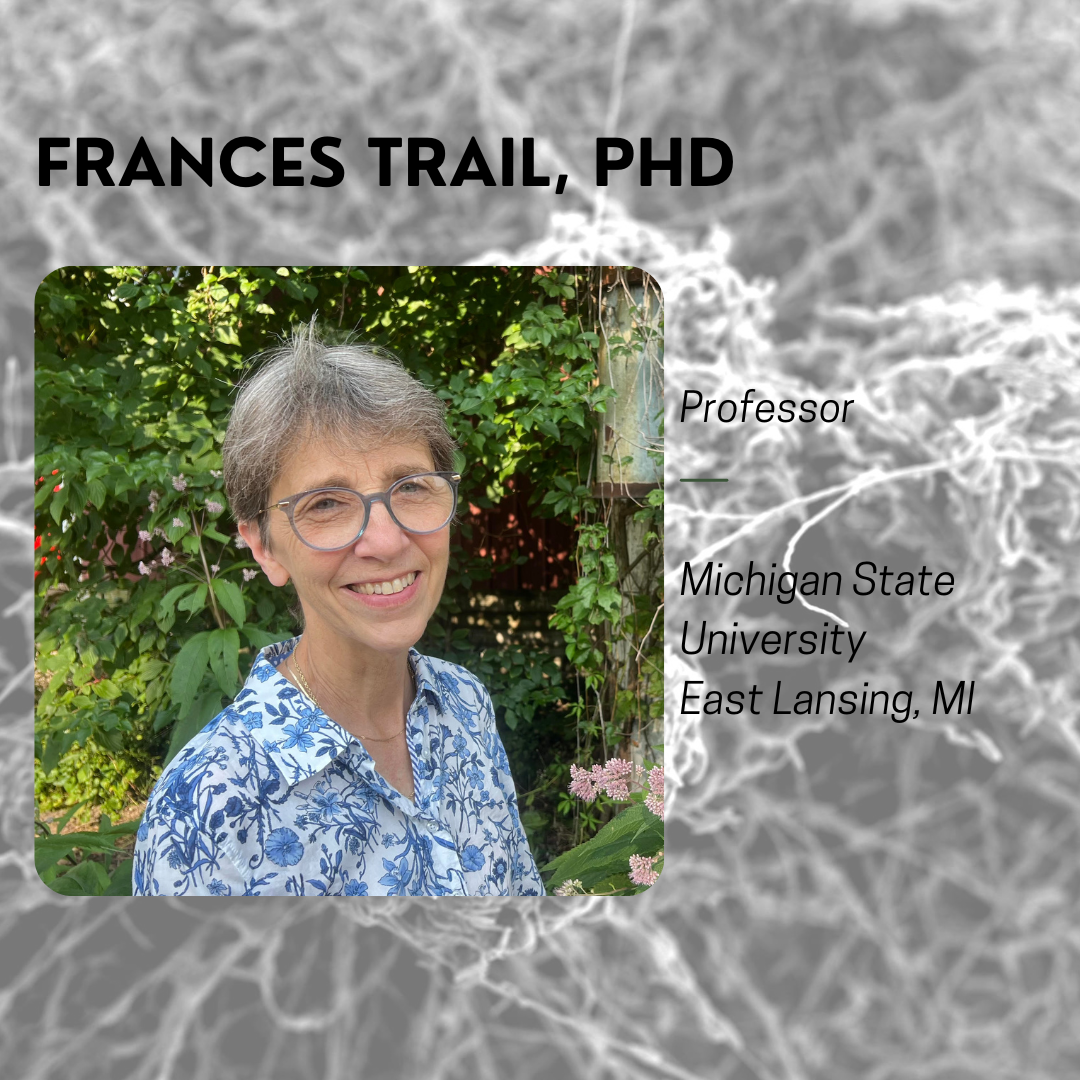Featured Researcher Bio - Frances Trail 2024

Meet Frances Trail, a professor of mycology and host pathogens interactions in the Departments of Plant Biology and Plant, Soil, and Microbial Sciences at Michigan State University. Trail has been a part of the USWBSI since its inception in 1999 and her funded projects have primarily focused on understanding the biology of Fusarium graminearum in order to develop new strategies for reducing the impact of FHB contamination in cereals.
Learning the Life Cycles of Fungi
Trail grew up in Brooklyn, New York. As a sophomore in college, she attended the State University of New York in Binghamton, and attended a class in botany since it was not geared towards Pre-med students. The instructor, Professor Bonamo, presented the students the wheat rust fungus life cycle, and she was hooked. “How could an organism produce so many different kinds of spores each with a different purpose?” wondered Trail. Since then, she has never stopped wanting to study the life cycles of fungi. She went on to receive her undergraduate degree in botany at the University of North Carolina at Chapel Hill. She received her master’s degree in plant pathology studying the wheat smut fungus at Oregon State University and completed her doctorate degree in plant pathology at Cornell University researching how fungi use enzymes to penetrate plant surfaces.
Unraveling the Life Cycle of Fusarium graminearum
Trail started working on Fusarium graminearum a couple years prior to the start of the U.S. Wheat and Barley Scab Initiative. She received funding in the first round and has been almost continuously funded by the Initiative in every cycle, for which she is very appreciative. Working on Fusarium graminearum for her entire career, Trail has focused on unravelling the interactions behind the different stages of the fungal life cycle, including the recent characterization of the role of biofilms in host surface colonization (https://doi.org/10.1128/spectrum.00171-22) and an ongoing focus on perithecium development and ascospore discharge (https://doi.org/10.1128/mbio.01100-22). Early on, she worked with collaborators, funded by both the USWBSI and USDA-NIFA, to sequence the F. graminearum genome and generate tools for genetic manipulation. This was the third publicly available filamentous fungal sequence in the U.S. and allowed F. graminearum to become a model system around the world for the study of fungal plant pathogens and the effects of the fungus on agricultural crops.
Presenting the Endless Battle of Fungal Cell to Plant Cell
Attendees will have a chance to learn more about Trail’s research during her presentation at the 2024 National Fusarium Head Blight Forum in Austin, Texas, on Monday, December 9. During her presentation, Trail will tie her lab’s recent work on the role of plant signals on Fusarium graminearm’s life cycle and its adaptability to the wheat’s biology, in the endless battle between fungal cell and plant cell.
For more information about Dr. Frances Trail's research, visit her lab's webpage.
To learn more about others in the FHB community, check out all the previous USWBSI Featured Researchers/Advocates.
